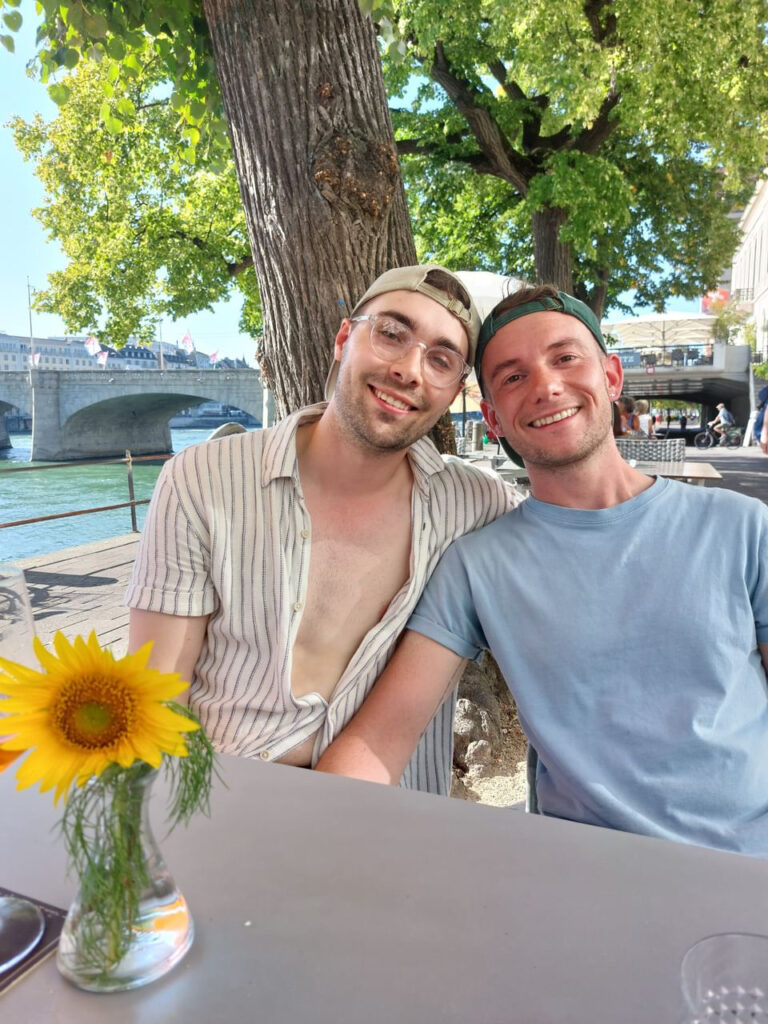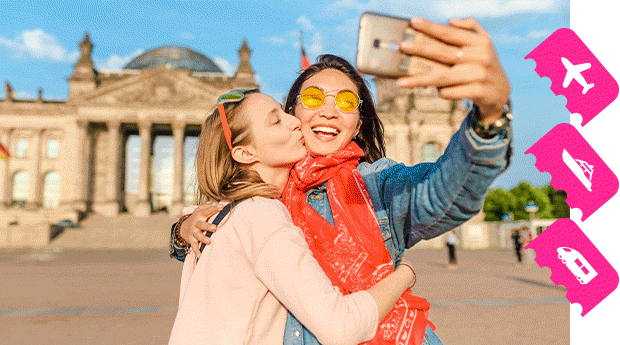It was only after he arrived in Jamaica that Cesar Arrocha, 33, realized he’d made a huge mistake.
“I was travelling with a female friend. When the guest house owner [in Montego Bay], a German woman, asked if we were a couple, I said I was gay … and her face told me everything,” says Arrocha, who remotely manages a team at a software development and staff augmentation firm. “She advised me not to give that answer so easily as Jamaica is a very homophobic country. I had no idea.”
Jamaican law criminalizes same-sex activity between men, with punishment including up to 10 years of imprisonment. Human Dignity Trust, a not-for-profit organization that challenges laws that persecute people on the basis of their sexual orientation and gender identity, notes that there have been “consistent reports of severe discrimination and violence being committed against LGBT people in recent years.”
Arrocha, who had planned to stay in Jamaica for two weeks, started telling people that his friend was actually his wife, as a way to avoid risking confrontation and harassment. “I was afraid a lot of the time since I learned about the homophobia. I wanted to leave as soon as possible.” He didn’t even attempt to meet other queer people in Jamaica. If there were any queer venues or organizations where he could have potentially found community, they seemed completely out of sight.
Digital nomadism, with its combination of remote work and travel to new places, promises a glamorous lifestyle that many people dream of; an estimated 35 million people around the world are doing it right now. But it also comes with a distinct set of challenges for queer people. And not just the never-ending search for WiFi, which makes many anxious digital nomads want to jump through the doors of their nearest café. Rather, one of the biggest struggles is the quest for community. Even on the most beautiful beach or in the cutest café, a queer person can feel lonely without familiar people around them. Once you add in language barriers and a potentially inhospitable environment, that sense of isolation can become overwhelming.
But experienced queer nomads have found many ways to find LGBTQ2S+ companionship while abroad.
Kenny Young, a gay 34-year-old Scotsman, likes to use apps like Grindr as a way to meet people platonically. (He’s currently taken.)
“I know people have their reservations about the app, but I’ve always found it to be where [people are] the most authentic,” says Young, who works remotely as an IT engineer for a software company. “I love seeking out queer, or otherwise, people in new cities because even if you don’t have a connection or a sexual experience together … we can meet in 10 minutes just to share breakfast or a museum tour.”

Other nomads prefer Tinder or Couchsurfing as a way to skip the “no fats, no femmes” profiles found on some/most gay hookup apps, and other platforms where the default is meeting up for board games and walking tours. Nomadism can be lonely enough without also having to engage in sometimes-toxic hookup culture.
Arrocha, who is from Panama, says he’s had good experiences travelling through Latin America; however, despite his shared language and cultural references, he has encountered barriers. “I have been a full-time digital nomad for 18 months, and I have met 10 to 12 queer nomads,” he says. “I move a lot and stay at least one month in each city. Considering that I mostly stay in capitals, [that] number [of 10 to 12 people] is low.” Arrocha chalks it up to the fact that the majority of workers in Latin America do not have the privilege to work remotely. “Additionally, salaries in Latin America are lower and people are not willing to sell everything and hit the road.”
For 37-year-old American Lauren Smith, a queer senior production designer, the company Hacker Paradise helped her circumvent the loneliness of travelling to an unfamiliar Latin American city. The company, which organizes accommodation and social programming for pre-selected groups of nomads around the world, launched in 2014 and now hosts trips on five different continents. Though it doesn’t focus on LGBTQ2S+ people, Smith used their services while working for several weeks in Florianópolis, a medium-sized coastal city in Brazil.

“I was content with the group of people [I met through] Hacker Paradise so I didn’t seek out more friends,” she says. “I trusted that HP would have my back if there ever was anyone who was disrespectful. I felt no discrimination…. I felt like we were all family for a few short weeks.” Included in Smith’s trip were several fellow queer nomads who connected with queer Brazilians through dating apps and local networking events; they provided an additional source of community for queer nomads on Smith’s trip.
Still, the nomad community can be home to a grab bag of political opinions, attitudes and values, with a demographic that leans heavily toward straight white males working in tech. Racist, homophobic and otherwise conservative travellers can sometimes be the loudest, giving remote workers a bad name abroad. Yet most nomads tend to be open-minded toward people from different backgrounds, which has helped programs like Hacker Paradise—as well as competitors Remote Year and WiFi Tribe—become popular among both queer and straight nomads. In fact, these programs actively seek diverse, progressive nomads to ensure that there is not just social harmony but also queer representation. For Smith, the two concepts are not mutually exclusive.
“The set of values one would have to be a digital nomad, regardless of sexuality, may overlap in many ways with someone who identifies as queer,” says Smith. “Values like freedom, exploration, independence, living authentically, nonconformity, and seeing the beauty in all cultures and peoples.”
Constant city-hopping can sometimes lead to burnout or a feeling of detachment, despite immersion in another culture—the screen becoming more of a home than one’s physical location. But more often than not, nomadism encourages cultural interchange, allowing nomads to bring home fresh ideas.
But it’s not just fellow nomads who might prove open and inventive. Local attitudes can also be surprising. Arrocha, who often travels with his partner, Daniel, has discovered some truths about his own POV by striking out on his own. “The thing that fascinates me the most, coming from a small and conservative country, is how open and proud people are in Brazil and Argentina,” says Arrocha. “In Brazil, for example, people are mostly happy and proud about being gay. I didn’t find too many closeted people.” In fact, he started therapy after being inspired by friends he made in Argentina.
Young, meanwhile, had to adjust his own habits while travelling through Poland, which he chose to visit not only for the cultural experiences but also for its exchange rate. “Warsaw was a lot better than the other cities there, as it’s the capital, of course, but they still hide their gay bars and it’s cash only, so it still feels a little dangerous to go down alleyways to find bars you’re welcome in,” he says. “I would protect myself often by just ensuring friends have my location on WhatsApp or trying to go to gay places with a group of gay people I met during the trip.” Young says he meets queer people while travelling by using gay dating apps and the website Couchsurfing.
Of course, some destinations make it easier than others to be out and to openly attend LGBTQ2S+ venues. Iceland, for example, is regularly ranked as one of the most gay-friendly places in the world. “Iceland has some very interesting queer culture,” says Young. “It’s almost as though everyone is gay or at least open-minded. You don’t get swarms of gay people, more so a blend of everyone. The way I believe it should be. The way the future looks.”
Of course, fitting in is not only determined by where we are on a map. Changing our own attitudes and challenging our prejudices also helps us find community. “A significant part of the queer population has beauty standards, even for friendships or casual encounters. You can even see some racism or biased opinions,” says Arrocha. “As queer people, we could do some deconstruction work here, especially while travelling. We must review our standards and open ourselves more to the places we visit. Latin America, where I have mostly been a nomad, is not a rich region, and people are diverse physically, emotionally and culturally. I believe that is something beautiful that a lot of us might be missing out on.”

